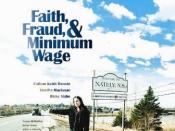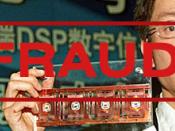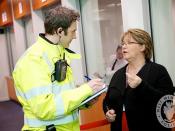When fraud is discovered within a business, the initial response is "How could that have happened?" And if audited financial statements were issued the question asked is, "Why didn't the accountants have a clue?" These two questions raise the question of whose responsibility it is to prevent and detect fraud. The cost of fraud to businesses today is mounting, as is the level of concern among professionals.
Fraud, according to Webster's New World Dictionary, is the "intentional deception to cause a person to give up property or some lawful right." The Association of Fraud Examiners'(1999) Report to the Nation on Occupational Fraud and Abuse further defines occupational fraud and abuse as "the use of one's occupation for personal enrichment through the deliberate misuse or misapplication of employing an organizations' resources or assets." A third definition comes from the Federal Bureau of Investigation. It defines fraud as "the fraudulent conversion and obtaining of money or property by false pretenses: included are larcenies by bailee and bad checks, except forgeries and counterfeiting" (FBI 1984, p.342).
The common thread among these definitions is that fraud is a deliberate deception for the gratification of an individual or group. Fraud requires a theft, often accompanied by concealment of the theft, and the translation of the stolen assets or resources into personal assets or resources. We are concerned here with fraud that may be detected through accountants and managers.
Data show that the overall cost of fraud is over double the amount of missing money or assets. As computerised systems become more complex, so is the expected cost of fraud. Approximately one in twenty company failures are attributed to fraud. One of these recent controversial and costly frauds is BCCI in Great Britain (MacErlean 1998, p.43).It is the trusted and valued employee who generally...


